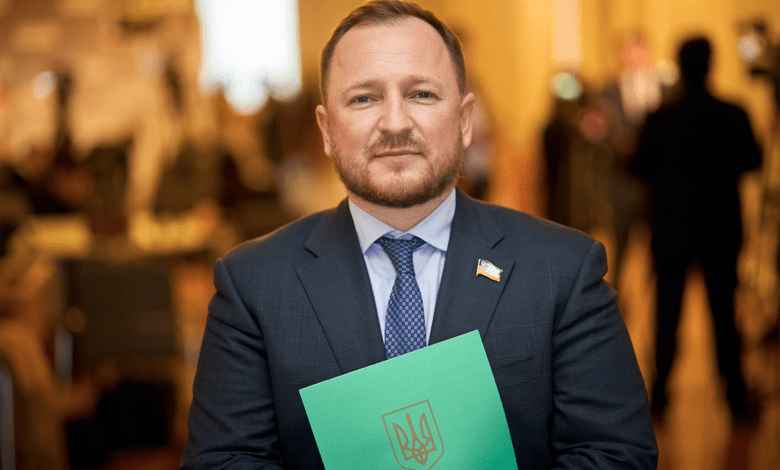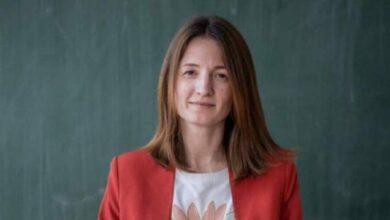Министерство образования и науки дискриминирует украинских детей за рубежом и переселенцев и вытесняет их из государственного образования — Павел Сушко

Министерство образования и науки Украины (МОН) в последние годы находится в центре постоянной критики — как со стороны политиков, так и педагогов и родителей. Эта критика носит не спекулятивный характер, а основывается на конкретных решениях, которые все больше воспринимаются обществом как губительные. Проблема заключается не только в отдельных реформах, но и в общей траектории действий министерства, которое все больше удаляется от миссии поддержки и развития образования, а сокращает, упрощает и ограничивает доступ к нему. Удару подвергаются все уровни образования: от дошколы до высшей школы, от общей средней до художественной. Особую остроту приобретает ситуация с украинскими детьми ВПЛ и теми, кто оказался за пределами Украины из-за войны. МОН не просто игнорирует их образовательную ситуацию, а только ухудшает ее. Народный депутат Украины, заместитель председателя депутатской фракции партии «Слуга народа» Павел Сушко считает, что недавно обнародованный приказ МОН №1112 дискриминирует украинских детей по признаку места нахождения.
Павел Сушко считает, что приказом №1112 МОН четко заложен дискриминационный подход:
учащиеся, которые находятся на территории Украины, изучают все учебные предметы и курсы, предусмотренные образовательной программой, включая избирательные компоненты. Для детей, находящихся за границей, предусмотрено изучение лишь отдельных интегрированных курсов. Такой подход, по мнению депутата, является формой ограничения доступа к полноценному украинскому образованию.
«Приказом N°1112 МОН предусмотрено следующее: учебный план дистанционного класса предусматривает изучение:
- учащимися, проживающими (находящимися) в Украине, всех учебных предметов (интегрированных курсов), обязательных для изучения, выборочных (по выбору учащихся) образовательных компонентов, предусмотренных образовательной программой учебного заведения;
- учениками, проживающими (находящимися) за пределами Украины, отдельных
- учебных предметов (интегрированных курсов), предусмотренных типовой образовательной
- программой для обучения детей, выехавших из Украины в результате полномасштабного вторжения Российской Федерации и получающих образование одновременно в учебных заведениях страны пребывания и Украины, утвержденной приказом Министерства образования и науки Украины.
Этим МОН фактически ограничивает доступ детей, вынужденных уехать за границу, к полноценному украинскому образованию. Кто дал такое право МОН — неизвестно», — подчеркивает Сушко.
По его словам, Министерство не имеет никакого законного права лишать украинских детей за границей доступа к образованию, и непонятно, на каком основании оно взяло на себя такую функцию. В реальности такой подход означает, что дети упускают шанс получить системное украинское образование, подготовиться к НМТ, остаются вне образовательного контекста страны, в которую стремятся вернуться.
Сушко обращает внимание на то, что министерство игнорирует ключевые аспекты — в частности, то, что во многих странах пребывания украинских детей нет требования обязательного обучения в местных школах. То есть в таких случаях — а они не единичны — ребенок остается вообще без образования: с одной стороны, не учится в стране пребывания, с другой — нет возможности получить полноценное украинское образование из-за ограничений, установленных приказом №1112.
Позиция МОН оправдывается доводом, что детям трудно учиться в двух школах одновременно. Но Сушко отмечает: никто не заставляет учиться в двух школах. Это право родителей — выбирать, нужно ли параллельное обучение, в каком объеме, имеет ли ребенок силы, мотивацию, потребность и возможность. Для значительной части семей это не только возможность, но и сознательный выбор. Кто планирует возвращение и не хочет терять связь с классом, кто видит в дистанционном обучении на украинском языке лучшее качество преподавания сложных предметов, кто ориентируется на поступление в украинский вуз, для чего необходимо готовиться к НМТ и иметь полноценное образование, а не фрагменты курсов.
Миссия МОН, по убеждению депутата, должна быть противоположной — поддержать этих детей, не терять их, не ломать образовательные траектории, а гибко подстраиваться к новым условиям. И такие гибкие форматы уже появились в некоторых школах, которые предлагают обучение во вторую смену, адаптируют графики, подходят к семьям индивидуально. Однако вместо поощрения подобных практик министерство создает барьеры. Особенно опасна эта ситуация выглядит для выпускников, которые, находясь за границей, хотели бы поступить в украинский университет на бюджет. Без системного образования они просто не имеют такой возможности. И тогда перед ними стоит выбор: либо не возвращаться, либо отказываться от украинского высшего образования. Это не только человеческая трагедия, это образовательная и государственная катастрофа.
Павел Сушко подытоживает: в нынешнем виде политика МОН выглядит так, будто министерство умышленно выталкивает детей из государственной системы образования. Практически единственной возможностью для получения полного образования стают платные онлайн-школы. Нардеп задает вопрос: что делать тем, кто не в состоянии платить? Он считает, что это уже откровенная социальная дискриминация. Он считает, что право на образование должно быть гарантировано независимо от страны пребывания ребенка. И только родители, а не чиновники МОН должны решать, нужно ли детям украинское образование и в какой форме.
«Право на доступ к украинскому образованию должно быть сохранено — независимо от того, где находятся наши дети. Незаконные приказы МОН должны быть отменены», – резюмирует Сушко.





